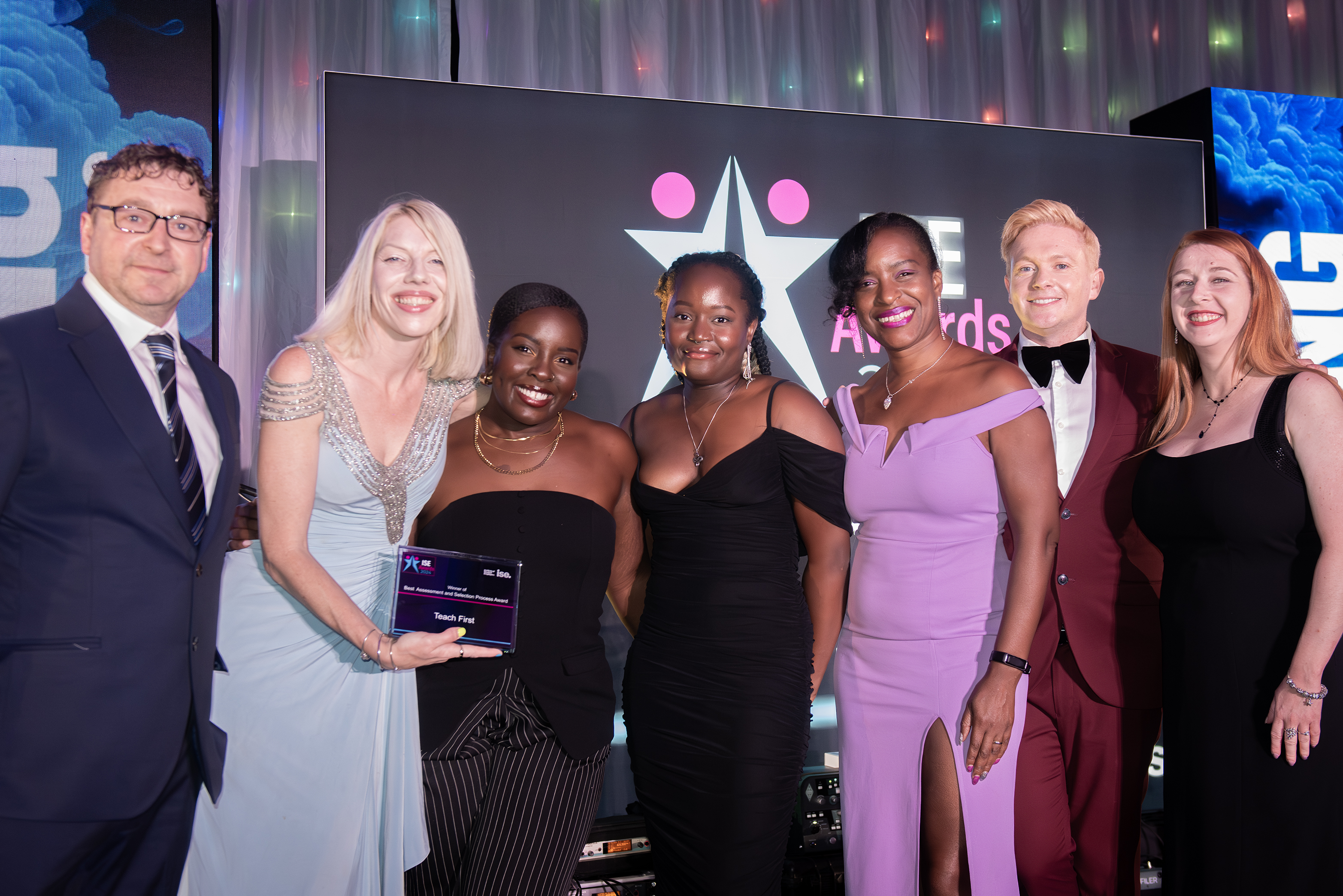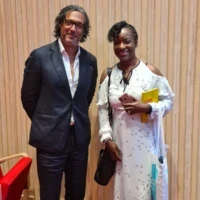Five years of change: Reflections from the outgoing chair of our Ethnicity Staff Network
As part of Teach First’s commitment to building a fair education for all and a fair place to work, we’ve established a range of employee-led affinity groups across the organisation.
Their purpose is to create inclusive spaces to grow professionally, provide support to members and identify opportunities to work together to make change happen.
Joanne Benjamin-Lewis is a Subject Development Lead on our Transformational Programmes and has led Teach First’s Ethnicity Staff Network for the past five years.
As she passes on the leadership baton, Joanne reflects on the enormous impact that the affinity group has had over the past five years, not only on herself and Teach First, but on the wider UK educational sector.
Joanne’s reflection on five years of change
As I reflect on my time as Teach First’s Chair of the Ethnicity Staff Network, I’m filled with feelings of joy and gratitude. It’s been five transformative years.
When I took on the role in 2020, lockdown was in full swing and the world was reeling from the murder of George Floyd, and the Black Lives Matter movement had reignited global conversations about racial justice, equity and institutional racism. The Child Q Report showed the devastating consequences of systemic bias and adultification.
Our network became a space of resistance and celebration.
Against this backdrop, our affinity network became more than a support system for staff – it became a space of resistance, healing, learning and celebration. As I pass the baton to the new co-chairs, I do so with pride in what we’ve built, and optimism for the future.
Shaping the times
During my tenure, we didn’t just respond to the times – we helped shape them. Our first in-person network day marked a turning point: a vibrant gathering of colleagues, giving space to share stories that laid the foundation for a more connected and empowered community.
We also supported the wider education community at the Teach First BAME Affinity Network Conference, where keynote speaker Evelyn Forde MBE – then Headteacher of the Year – delivered a passionate address on leadership, resilience and representation in education.
The prestigious Festival of Education also gave members of our team an opportunity to share our knowledge about diverse texts and how educators can devise a truly diverse curriculum. It was here that I was able to meet the esteemed historian, David Olusoga; what a moment!

A special moment at the Festival of Education – meeting historian David Olusoga.
Opportunity to influence
In the wake of the harrowing Child Q scandal, I took a bold stand. I wrote an open letter that was signed by a coalition of educators, journalists, politicians, creatives and [now former] Teach First CEO Russell Hobby, demanding systemic change and accountability in safeguarding practices. This open letter was sent to the Secretary of State for Education and the Home Secretary and appeared in the national Independent newspaper. It reminded us that silence is complicity – and I chose to speak and used my platform to do so.
I hoped above all that I represented the needs of my community.
At moments like this, when I was featured in a national newspaper or was asked to speak on BBC Radio, I can unequivocally say that I felt nervous. A girl from a working-class immigrant family, having the opportunity to influence, as well as share, her lived experience was a moment of pride, and I hoped above all that I represented the needs of my community.
The fight for curriculum reform
One of the defining aspects of my leadership was my response to the Missing Pages Report, which exposed the stark lack of racial diversity in the English literature curriculum. I worked to ensure that authors of colour were no longer invisible on school curriculums. This advocacy contributed to tangible change: exam boards revised their GCSE set text lists to include works by writers such as Malorie Blackman, Winsome Pinnock and Kit de Waal.
These victories weren’t just symbolic – they were major shifts that will shape how young people see themselves and others. It was always my hope that reading more diverse texts would lead to greater cultural understanding among future generations, which is even more important in today’s climate.
Honours and recognition
There were so many moments of personal and collective pride. I was honoured to represent our charity at the King’s garden party in Edinburgh, a celebration of service and community held at the Palace of Holyroodhouse.

Joanne (third from right) with the team at the ISE Awards, celebrating commitment to diversity and inclusion.
I also stood alongside an incredible team that received the Institute for Student Employers’ awards for Commitment to Improving Diversity through Student Resourcing and Best Selection and Assessment Process – recognition of our commitment to equity, not just in words, but in our practices and pathways.
There have been so many beautiful moments; interviewing actor Jumyan Hunter, spotlighting school leaders like Dawn Ferdinand, Adrian Rollins and Gilroy Brown, as well as sharing the talents of colleagues Amanda Agard and Liz Da Silva who have both written children’s books.
Shifting the narrative
The impact of our Ethnicity Staff Network has been immeasurable. From securing funding for the Underrepresented Talent Programme – now the Emerging Leaders initiative – to working to secure the inclusion of diverse texts on the GCSE English literature set list, we’ve shifted the narrative.
We’ve kept diverse texts firmly on the agenda.
We also convened roundtables with leading Initial Teacher Training providers to spotlight the lived experiences of Black and Minority Ethnic teachers, supported the Mission 44 and Teach First recruitment programme to diversify the STEM pipeline and ran a BAME listening exercise that has led to a commitment to anti-racist training development. And we’ve kept diverse texts firmly on the agenda in English and history departments, ensuring that representation is a sustained priority.
Looking ahead
In recent months, I have felt that the urgency of our work has only intensified.
Now more than ever, educators have an important duty: to nurture teachers and leaders who are equipped to navigate difficult conversations, challenge misinformation and instil in future generations the tools for critical thinking, courage and discernment. In a world awash with misinformation, our classrooms must remain spaces where the truth must take precedence.
To the incoming co-chairs of Teach First’s Ethnicity Staff Network: you inherit a legacy of boldness, compassion and relentless pursuit of fairness. But more importantly, you inherit a community that believes in you.
The path ahead will often be complex, but you have a huge community behind you. Lean into the discomfort, amplify the unheard and never underestimate the power of collective action. I will be cheering you on every step of the way.
Read here for more on Teach First’s diversity and inclusivity initiatives and what our members and employees are doing to drive lasting societal change.
